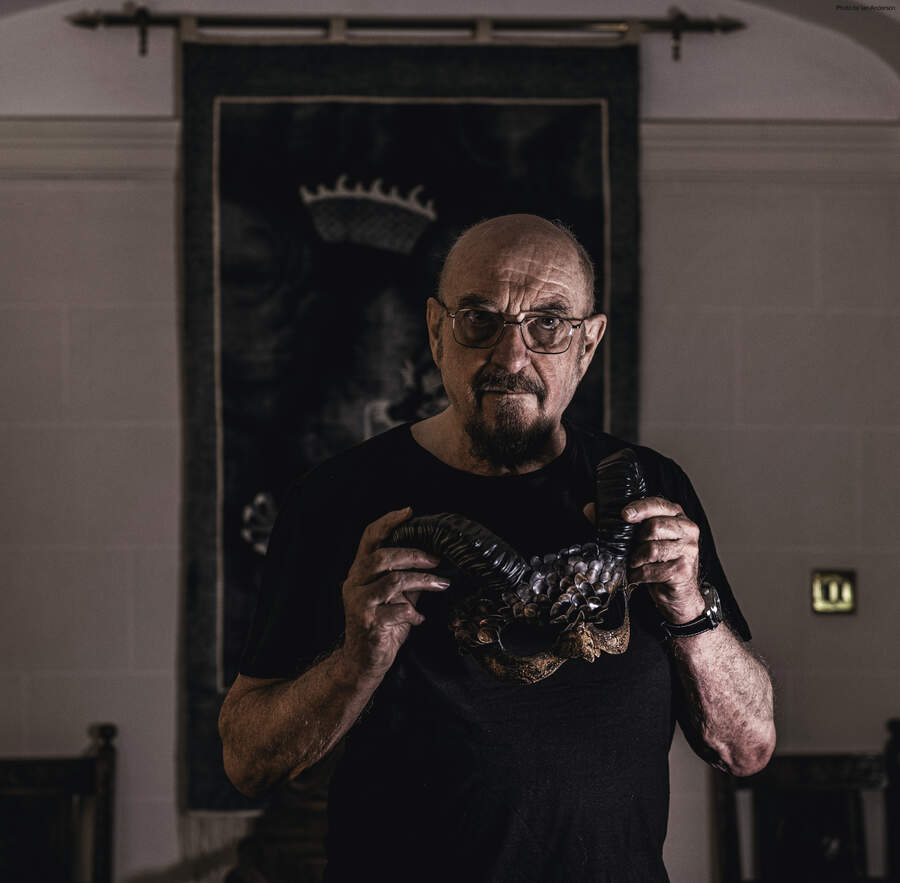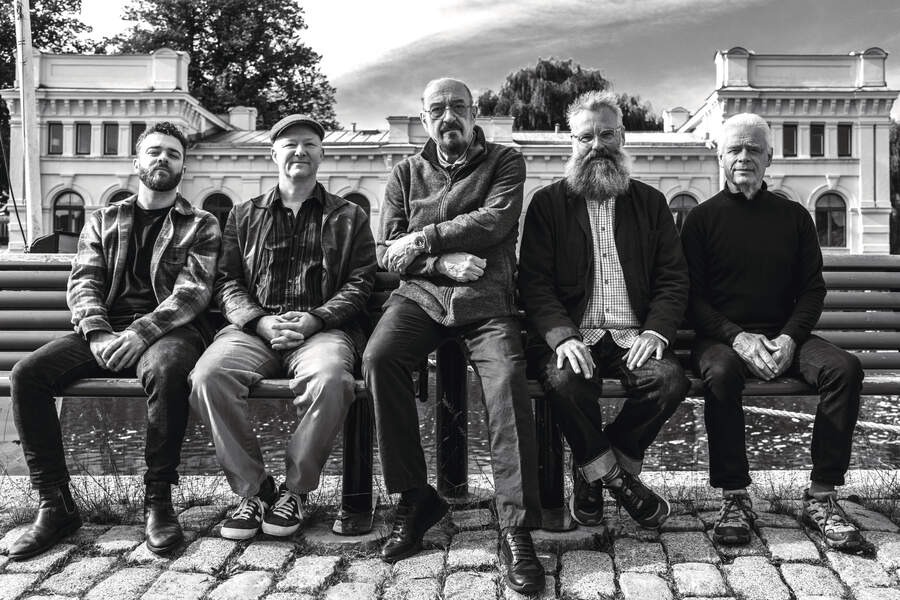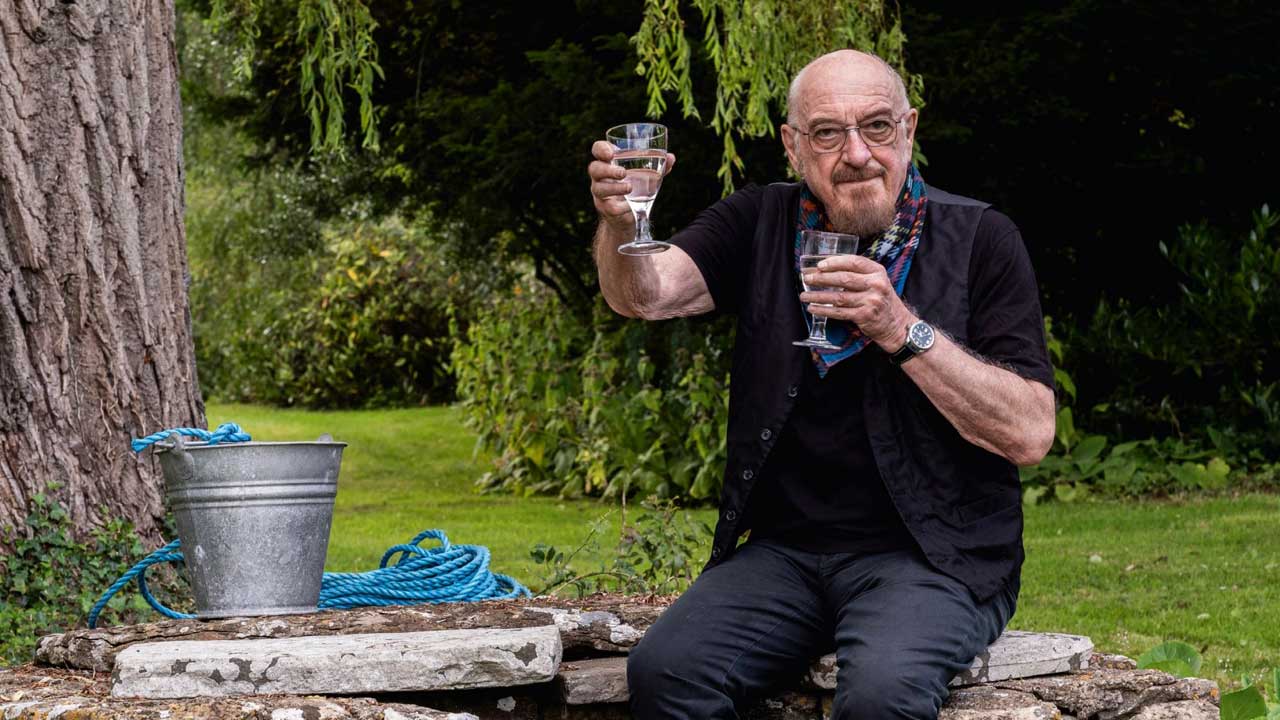For a 77-year-old who just a few years ago was told he was terminally ill, and on “a slippery slope to inevitable death”, Ian Anderson looks and sounds in remarkably fine fettle. And creatively, he and Jethro Tull, the band with which he will forever be synonymous, are on a prolifically productive roll the likes of which we haven’t seen since their 70s and early-80s prime.
Released last month, Curious Ruminant is the band’s third album in just over three years since they were reanimated as a recording act with 2022’s The Zealot Gene, the first Tull album of new material in 23 years. So what has inspired this sudden late-career burst of activity? And is it really any dignified way for a man in his midseventies to behave?
Anderson has told this publication before that showbiz old stagers like him “aspire to be rock’n’roll Eric Morecambes and die with our boots on like a cowboy in a western”. While we sincerely hope he doesn’t mean that literally, he seems more committed than ever.
“I am driven by two things,” Anderson says. “Desperation and enthusiasm. The enthusiasm I’ve always had, the desperation is because I’m an old guy and I know that sooner or later I won’t be able to do this any more.”

Anderson is also a man who follows his muse – and it seems to be pretty hyperactive right now. “Once I have a notion, an idea, a title, a song, or something conceptual,” he says, “then it’s like a snowball at the top of a slope, rolling down, gathering momentum.”
Tull have also toured tirelessly, despite the pandemic making the prospect more hazardous for a senior gentleman like their founding frontman and principal songwriter.
Indeed, given the ongoing health issues that he has revealed in recent years, that approach still seemed brave verging on reckless. In 2020 he revealed that he had been diagnosed with chronic obstructive pulmonary disease (COPD) a while previously. Thankfully he has found out since that the prognosis isn’t quite as grim as first thought.
“In 2017 I was diagnosed with COPD, which is pretty serious, a slippery slope to inevitable death. But that was re-diagnosed in early 2022 as asthma. They said: ‘You probably had asthma all of your life. You just didn’t know that was why you were having all these bronchial problems.’ So I take my medication religiously now, and things have got a lot better in the last couple of years.
“It’s made a big difference to my breathing, my singing, my flute playing. I have more capacity.”
While there’s no doubt that in his later years Anderson’s voice has evolved to a softer tone – compared to the sometimes theatrical, occasionally abrasive timbre he had on the band’s classic early albums such as Aqualung and Thick As A Brick through to folkier late-70s ones such as Songs From The Wood and harder, more fantasy-infused 80s records like The Broadsword And The Beast – his flute playing is as spritely as ever on new tracks including The Tipu House and Stygian Hand, where it throws up many of the melodic hooks that make Curious Ruminant such an arresting listen.
As anyone who’s played one knows, breath control is a huge part of mastering the flute. So if we happened to live next door to Mr Anderson, would we be likely to hear those trademark tones every day?
“Well I don’t necessarily have to practise every day,” he says, “but every couple of days is certainly a good idea to do it, especially as you get older, because the muscle memory of where to put your fingers can start to slip, and the embouchure, the control of the lip, the muscles there can get a bit floppy. James Galway, the famous classical flautist, told me: ‘As I get older I have to practise more.’ You really do have to put in the hours.”
On the new album, Anderson is credited as being in charge of “flutes, vocals, acoustic guitar, tenor guitar, mandolin, odds and sods, bits and bobs”. But it’s the first of those that he will forever be associated with. So what possessed young Ian, coming of age in Blackpool in the 60s, to opt not for the perennially sexy choice of the guitar, but instead learn to play the flute?
“I had a fascination for other instruments, and I was a guitar player at first – but not a great one,” he recalls. “I got a Fender Stratocaster, whose previous owner was Lemmy, who was a rhythm guitar player with Rev Black And The Rocking Vicars in Blackpool at the time. He traded it in when he went on to play bass, and I bought it second-hand. Lemmy still owes me a pound, in fact. And I don’t think I’m going to get it back.
“But I was never going to be as good as Eric Clapton, Jeff Beck, Jimmy Page, Ritchie Blackmore, who were the hot-shot guys down in London, so I cast around for something different to play, and decided, for no particularly good reason, to trade in my trusty Fender. I got a thirty-pound flute and a thirty-pound Shure Unidine 3 microphone out of the deal.
"So I walked away a relatively happy man – even though that guitar is probably worth £50,000 now. And I still think it was a good deal, because the flute gave me a much-improved chance of getting noticed in a world where, in terms of flute players in blues and rock, there was… well, just me, really.”
Just you? What about Ray Thomas of the Moody Blues?
“Yes, fair point. And Chris Wood from Traffic played flute and sax, and there was a guy in King Crimson. Talking of Ray Thomas, his playing wasn’t the most adventurous, but the one thing that was hauntingly beautiful was the flute solo in Nights In White Satin. I always had a hankering to play that, and when Justin Hayward was a guest of ours at Canterbury Cathedral some years ago, we did Nights In White Satin, and I finally got to play the flute solo. It was a touching moment.”
While it’s easy to get the impression that Ian Anderson is something of a workaholic, the title track of new album, Curious Ruminant, stresses the importance of making time to sit back and ruminate. As the lyrics have it (referencing a song on Aqualung): ‘Days of quiet watching, thought bubble clouds blow through the years, wond’ring aloud.’ The same song also refers to ‘dissenting voices from steeple spires… as brief as mad March daffodils’, possibly in reference to today’s insistent chatter of social media, rolling news and opinions that constantly vie for our attention.
“People do tend to get caught up in it,” he says, “and I think that robs the majority of people from those precious moments that might arguably be much better spent stopping to calm yourself down, thinking things over.”
Having travelled the world with Tull and as a solo artist, Anderson also feels it’s important to soak up your experiences at your own pace.
“Some things are very obviously profound that you take in, and you find yourself thinking about them quite often,” he muses. “I visited Chernobyl [site of a catastrophic nuclear reactor explosion in Ukraine in 1986, the effects of which are still being felt] some years ago, and was able to go down in the depths of the reactor building next to the one that melted down. I can still hear my Geiger counter, which my wife kindly bought for me ready for the trip, going: ‘Tick… tick… tick… tick, tick, tick, ti-ti-ti-tick… Oh my gosh! Those things, you really do need a lot of time to ruminate on, to process and think through and re-evaluate in the light of further information.
“Every day, I do like to feel I’ve added to that capacity which the human brain seems to have in spades – even greater than the capacity of my Apple iMac that I’m sitting looking at right now, which probably is getting rather full, I imagine.”
He’ll be all the more sure to make sure he backs up his files, though, after an episode that turned out to play a key role in the new album – and the reason its credits include the names of old Tull members Andrew Giddings and James Duncan.
“My son happened to be looking through an old Macintosh computer, and he was just about to trash it, wiping everything. Then he came across a music file, and he said: ‘Is this anything you recall? Something we should keep?’ I listened, and it all came flooding back. I thought, wow, amazing flute playing, which I wrote for the Indian classical flautist Hariprasad Chaurasia, for us to play together at some concerts in India. I guess he didn’t like it, because he never replied to my email, and we ended up having to play an Indian raga of his choice instead.
“So this demo sat there for a long time, and then I heard it and I thought, wow, I’ll write some lyrics for that. I also kept the original keyboard parts, which were played by Andy [Giddings], our keyboard player at the time. I rebuilt the rest of it as a song for the new album, and it was fortuitous, because although it’s a long piece – the third longest Jethro Tull track ever – it doesn’t seem out of keeping with the rest of the music.”
The song’s title is Drink From The Same Well. Its lyrics unfold in a beautifully meditative, meandering 16-minute track, appealing to find common ground – and a little sanity – among the mania of modern cultural discourse. ‘Culture bending, message sending, shouts of river to the sea, displaying wilful ignorance as to shifting tides of history/They drink from the same well as you.’
The subject referred to by that mention of ‘river to the sea’ is Palestine and the chant of many a protest march, which many Jewish people feel suggests a desire to wipe out the state of Israel. Delicate subject matter to broach in an age of culture wars. But Anderson goes further on this album on Over Jerusalem, once again despairing at the polarisation of the situation in Israel and Gaza: ‘There is no time for meditation, pause for thought or hesitation… angry gods of retribution, driving hate without solution.’
He explains further: “I’ve been to Israel, and Jerusalem, several times, and I have a passion for the city and its history, which of course is a long one, full of torment, destruction, hatred, vengeance, loathing, invasion. And yet it is, in a way, the geographical centre of the universe for the Abrahamic religions. So it has a special significance for me as a traveller.
“I suppose we think we know from our television screens more about the city and Israel as a whole, of course, and sadly, about the West Bank and Gaza. But there are no clear-cut rights and wrongs for me. I’m not preaching one side’s merits over the other.
“It’s all about vengeance and it’s all about nastiness. And my own effort is to be involved with some NGOs and charitable bodies who endeavour to try and bring the different factions and cultures and religions together, particularly through the performing arts. Somewhere, those differences can be, at least temporarily, forgotten.
“For quite a few years I’ve been giving the money from concerts to a couple of bodies you’ll see on the Jethro Tull website at the bottom of the home page. It’s a tiny thing, but it makes me feel that I can stand up for myself if anybody gets stroppy with me about either not boycotting Israel, or in some way being a bit harsh on the Israeli government. Because too often, anything you say will be taken, especially at the behest of Netanyahu and his cronies, as being antisemitic.”
Trying to find a middle ground, though, surely won’t prevent Anderson from offending both sides in the modern climate. “Yes, but I suppose at my age I’m less careful than I perhaps would have been twenty years ago. Being cancelled would make no difference to me in my life, because I don’t do social media, therefore I wouldn’t know I’ve been cancelled.”
Other topically relevant songs on the new album include Dunsinane Hill, its title being familiar to those au fait with Shakespeare’s Macbeth. Like the Scottish play, its theme is ruthless ambition and betrayal of erstwhile brothers in arms. The lyrics, however, make more contemporary references, to scenes ‘as brothers roam the Commons, encounter pushy spin doctors’ while being ‘seduced by wicked promises’. A throwback to severed alliances such as Blair and Brown, or more recent examples?
“It’s a story that is continually retold,” Anderson says, “whether it’s Blair and Brown or Boris Johnson and his colleagues. There’s always a couple of brothers in arms, who are all nice and cosy and fighting the same cause, who fall out with each other. And I suppose the next one might well be Trump and the electric car guy… whose name I cannot be persuaded to utter. Mr Tesla – even the name is a rip-off.”

Soundtracking such timeless tales is a Tull line-up that has remained unchanged since the band’s return to the studio in 2022, with the exception of 30-year-old new guitarist Jack Clark, who replaced the similarly youthful Joe Parrish last year. Clark completes a pan-generational line-up alongside a rhythm section of bassist Dave Goodier (70) and drummer Scott Hammond (51), and keyboard player John O’Hara (62).
Does the inclusion of younger players keep their boss youthful in spirit?
“Well, not necessarily,” says Anderson, “because we’re all basically just big kids, feeling lucky that we’ve never had to get a proper job. But it does remind you to appreciate what you do, when you see through their eyes the sense of wonder, playing in front of bigger audiences and travelling to different parts of the world, seeing something that they maybe dreamed about in connection with some degree of musical success. You relive that through them.”
The opening track on Curious Ruminant, Puppet And The Puppet Master, decorated enticingly by O’Hara’s piano and accordion as well as Anderson’s ever-effusive flute, could be regarded as a reflection of Anderson’s six-decade career on the stage and the duality of his task to serve an audience while also manipulating them. ‘I am both willing puppet, puppet master also, with lofty expectations set to pull me to and fro,” he sings. So who’s actually in charge here?
“Anybody who has to get up and perform, even if it’s in the Prime Minister’s questions,” he says, “it’s something of an art form, where you’re always risking getting caught out, trying to find that balance between authority their demands upon you. And perfection is always hard to find.”
True. But Jethro Tull fans now hardly demand perfection in the music Anderson and the band make. They’re happy enough that on stage he can still maintain that famous one-legged pose (memo to those who over-use the word: that is what you call ‘iconic’) while continuing to shift shape as an artist. No need to ruminate too hard on that one – job’s a good ’un.
Curious Ruminant is out now via Inside Out Music.




